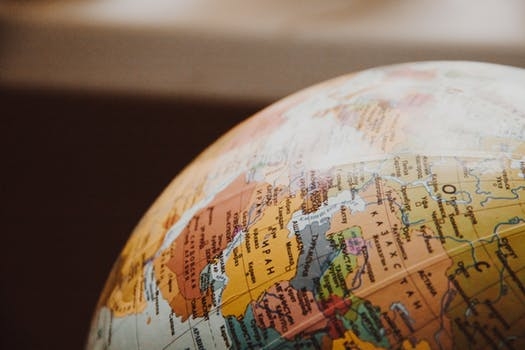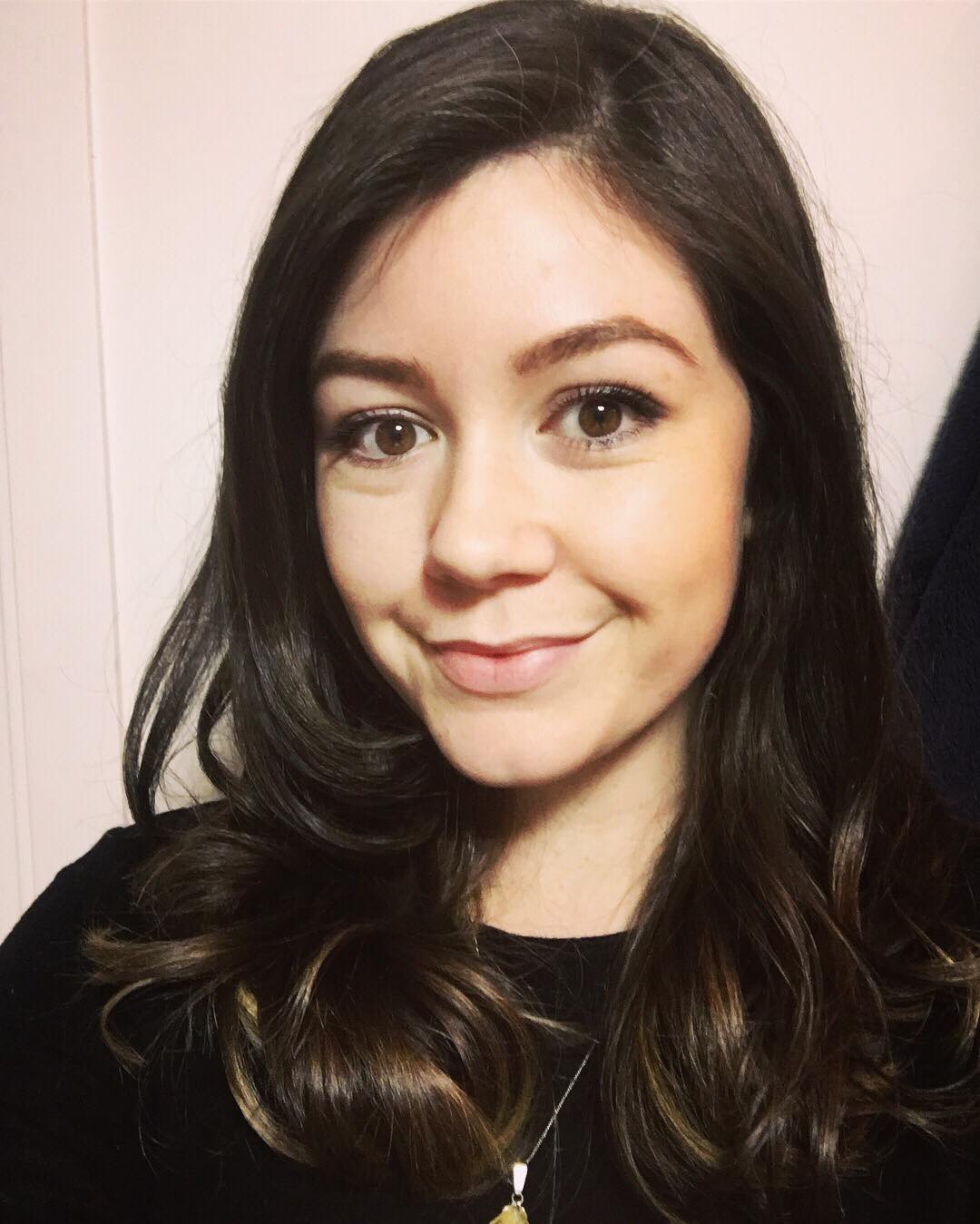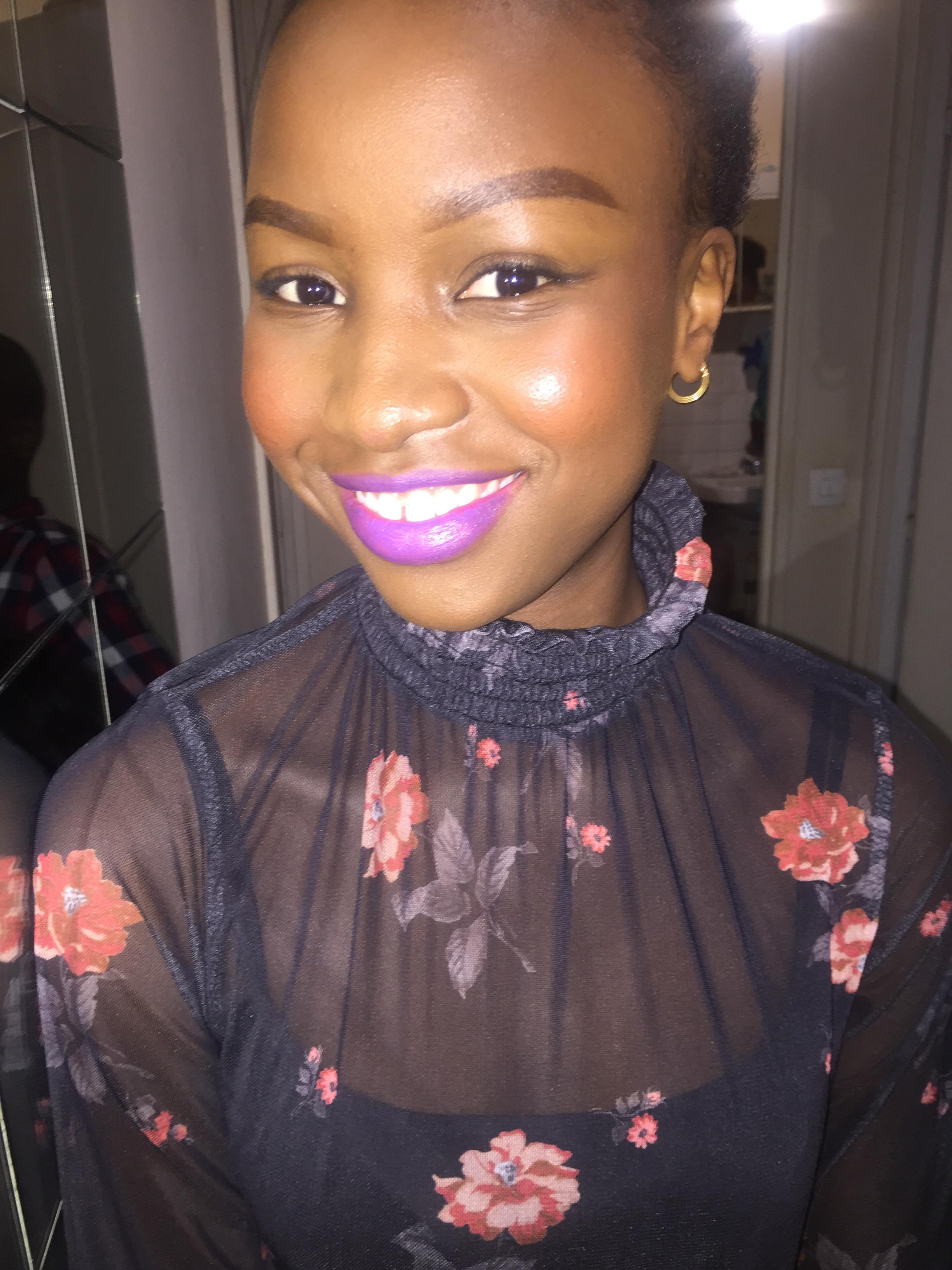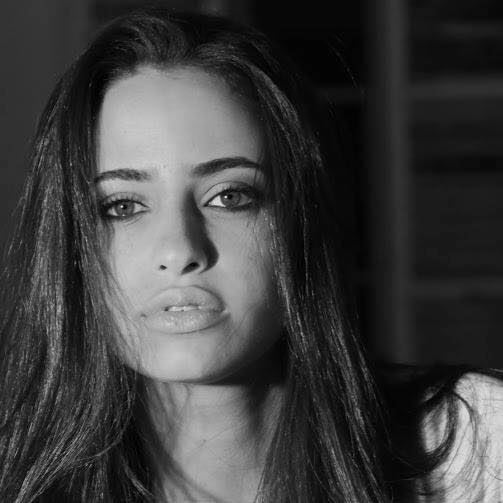Political Power in Different Cultures of AUP

According to the Business Insider, the most politically powerful countries today are The United States, Russia, China, Germany, and The United Kingdom. Sometimes it seems as if all we ever hear about is the newest scoop on Donald Trump, Angela Merkel, Vladimir Putin, Brexit, or China's large economy- but these are only five countries out of the 195 countries on our planet. What about the rest of the world? When was the last time you heard about Mohamed Morsi? Or the female prime minister of New Zealand? Do you know what's the official language(s) of Senegal? Five students from five different continents sat down for a chat about the political governance in their home country.
Image Credit: Anna Leslie Chapman
Name: Anna Leslie Chapman
Country: New Zealand
Chapman did her undergraduate in Wellington, New Zealand, studying politics, international relations, and history. She spent three years volunteering at the Holocaust center of New Zealand and was a board member for two years. She also grew up in England, Malaysia, and Brunei. She worked for the New Zealand government for four years at the Citizenship Office at the Department of Internal Affairs. Chapman is currently a graduate student at AUP studying Diplomacy and International Law. She wants to work for the United Nations or the Red Cross after her degree. She is very interested in immigration and human rights.
"We are a part of the British Commonwealth, so we still remain, formally, a part of the British empire. The political system is a constitutional monarchy. The absolute head of state is the British queen. She has the final say. New Zealand is a dominion, like Australia or Canada. We are different from Australia; they have a state system like the United States, but we only have the parliament, so it is easier to get things done because you don't need all of the states to agree. We are approximately four million people. We have a mixed representative parliament where they decide on laws and policies for the people, but the British queen needs to sign it off.
The British representative is the government general. We also have the prime minister and different members of political parties. Above that, we have the government general and then at the top, there's the Queen. It's a structured government. In terms of governance, we are a democracy. We became a colony in 1840 so we're still less than 200 years old! Then in 1907, we became a dominion. We got more autonomy and we got our own parliament.
We had all the revolts against the British in the '60s and the '70s as well as during World War II. We don't really feel that way today and it would be costly to do that, so I don't think that we would ever revolt today. We're happy with the country; New Zealand passport is one of the best in the world... And generally, people like Kiwis!
The culture in New Zealand is very laid back. If I were to describe New Zealand politics in 5 words I would say progressive, multi-cultural, imperial (because we are still a constitutional monarchy), laid-back, and moderate."
Image credit: Rokhaya Wade
Name: Rokhaya Wade
Country: Senegal
Wade is a senior at AUP. She is a double major in Finance and Economics. She has been in AUP for 3 years. She is a Pan-Africanist, a proud African and very engaged in the future of African countries. She sees herself changing things in the future. She admits that she is not tremendously interested in politics but admits that they are important for her future and the world in general.
"Senegal is a democracy with a laïque political government. Our politics are heavily based on the French system. Senegal is a former French colony, so the official administrative language is French. However, it's not the language that most of the population speaks. There are ten different dialects of the Senegalese languages spoken in the country. The main dominant language is Wolof (43% speak Wolof). The independence movements gained popularity after World War II and we finally became independent from France on April 4th, 1960. However, we are only independent on paper; the link is still there between the West African former French colonies and France. It’s a bond that can’t be broken.
The Senegalese population can be split into two groups: the minority of intellectual and literate people who had the opportunity to go to school and educate themselves, and the bigger mass of the illiterates that did not go to school who only speak Wolof or their local language. They are not as engaged in the political, economic and social life as the rest. They just go and vote for whoever they feel like voting for.
If I were to describe Senegalese politics in five words I would say old: the people in the government are old and it's hard for the young to get into the political field; money-driven: it's ultimately all about the money. You can't even go on a campaign if you don't have enough money; dominance, relating to the power struggle between France and the locals; religious guides: even though Senegal is not a religious government, religion still has a very strong influence on the politics because 95% of the population is Muslim, and we have different kinds of ideology groups. If a politician has the support of a big religious group it is almost certain that they will win the elections; and peaceful: despite all these problems with politics, at the end of the day we are one of the few countries in West Africa that does not have any wars or armed conflicts due to politics. It's really a peaceful process. We always put peace on top.
It's our responsibility, especially if we qualify ourselves as young African intellectuals, to not go back to the country or look down on the rest. I'd like to think that my generation of young Africans is conscious, at least those people who have gone to school and have a university degree. I'd like to think that they come back with an idea of making things change."
Image Credit: Jomana Saber
Name: Jomana Saber
Country: Egypt
Saber is a senior at AUP. She is studying Political Science with a minor in International Law. She lived in Cairo and attended a modern English school there before coming to Paris. After AUP she wants to pursue a graduate degree in Middle Eastern Politics.
"Egyptian politics were extremely corrupt in the past. Hosni Mubarak was the president of Egypt until 2011. The public hated that he was president for 30 years; it was a dictatorship with electoral fraud, unemployment, low wages, police brutality. The list goes on. Obviously, we needed change.
The revolution was on January 25, 2011. After that came Mohamed Morsi. This time, there was no electoral fraud because we had foreign countries surveilling the elections. Mohamed Morsi used Islam to influence people. The Muslim Brotherhood was good at organizing their thoughts and how they were going to present it to the public, so the succeeded and he won (sadly). Mohamed Morsi was like the Egyptian Trump.
Abdel Fattah el-Sisi was the general who took care of the military while Morsi was president. People were revolting in the streets- everyone wanted Morsi to leave because the corruption was still prevalent. We felt that he was a dictator, that there was no kind of democracy. He was removed, and only a small minority was against this removal. After that we had elections. El-Sisi didn't even want to participate in the elections, but people left their houses to march through the streets to get him to be the president. He entered the elections for the sake of the people and he won. This is where we are right now.
People were very happy with him the first year and they were very patient with him (which is rare, because Egyptians are not patient at all). They gave him a chance and now we are more democratic, we have less corruption, and there is less police brutality. We still have low wages, but unemployment is decreasing every day. We do still need better education and our currency to grow stronger, but as a politics major, I understand the mechanism he is using for change. The public doesn't understand his system, so they are starting to get mad- it's been four years and the prices are still extremely high. I've understood that this is just a phase that we all need to go through for the country to become stable again. The more educated the people are, the more they understand that this is just a phase, and that El-Sisi is trustworthy.
The media is a big problem for us because it is reducing our tourism, which is a big reason why the currency is still so low. No one is going to Egypt because of the media portrayal of the country, even though the country is extremely safe. Egyptians are not terrorists.
It is terrible, but to be honest we are not smart enough to overcome the opinion of the United States, Israel, or any other country that does not like Muslims or Arabs. If Arabs had less conflict amongst each other, our politics and education would be better. I believe that we would never need any other country outside of the Arab world if we could come together. The Arab world is divided and when we come together we are definitely stronger."
Image Credit: Kevin Shen
Name: Kevin Shen
Country: Taiwan
Kevin Shen is the President of the Singapore Students Association of France, Secretary of AUP's Diversity & Cultural Club, the Sophomore Representative and an active member of AUP. On the weekend, he works as a tour guide and volunteers at various organizations. He double majors in International Comparative Politics and History, Law & Society. Coming from a multi-ethnic Singapore, Kevin believes in the importance of tolerance and acceptance to better one's self and the greater community. He also likes strolling in Paris and petting random dogs on the street.
"Politics in Taiwan is defined by our relationship to mainland China and the United States. Poised between an endless battle for independence and reunification, Taiwan has become a political pawn and there is a little regard to the views of the Taiwanese people on the international stage. Despite the lack of international UN recognition, Taiwan is a thriving democratic state that boasts a high level of economic development and civic engagement. Last year, Taiwan became the first Asian state to recognize same-sex marriage after our top court ruled in favor of same-sex marriage. Furthermore, Taiwan is able to maintain its socio-economic and cultural autonomy separate from mainland China. I don’t have a position on independence or reunification, but I believe that it should be decided by the people of Taiwan. Coming from a long history of oppression under the Kuomintang (KMT) party, Taiwan has evolved into something of a model for democracy in Asia and many Taiwanese people believe that equality, freedom, and democracy are all essential values to the Taiwanese identity.
Today Taiwan is not recognized as an independent country by the UN but a part of China. The reason for this dates back to the Chinese Civil War. Technically Taiwan was represented as a country before the Chinese Civil War. Basically, you had two different fractions- The Communist Party and The KMT- during the Civil War. After the war, you only had one fraction, which was the Communist Party. The KMT fled to Taiwan and is currently the Taiwanese government. Before the war, the KMT was in power in China so they were represented by the UN. For a period of time, Taiwan was part of the UN in the sense that it was considered China. So, you had the Communists controlling the mainland while you had The KMT Representing China on an international stage. They were representing the whole of China, essentially. In that sense they were a part of the UN, but you had the Communist Party which controlled the mainland of China which was not represented by the UN."
Image Credit: Stephanie Alex
Name: Stephanie Alex
Country: Venezuela
Stephanie is a senior at AUP majoring in Global Communications and minoring in Journalism. She moved from Venezuela to Miami when she was a teenager. Now living in Paris, she wants to pursue her master's degree in the United Kingdom next fall.
"The current political situation in Venezuela is chaotic. It is a dictatorship masked as socialism. It is complicated to start talking about the topic because there are so many issues to cover, such as extremely high inflation rate, delinquency, lack of basic products such as milk and bread and a terrible mismanagement of national funds that have brought the country to a state of emergency. For almost 20 years the political party United Socialist Party has ruled Venezuela. Even though it is claimed that both presidents Chavez and Maduro were elected through democratic elections, the common sentiment in the country doesn't reflect that.
Millions of Venezuelans have immigrated to other countries searching for opportunities that their countries can't provide them. In my personal experience, my family was a victim multiple times of the high crime levels in my hometown. Like many other immigrants, we were forced to move out of our country for safety reasons and hoped for a better future.
The almost extinction of the middle class has been a major issue for Venezuela's economy. The salaries stay very low and can't keep up with the drastic inflation levels. The common citizen can't afford to buy regular basic products such as bread or toilet paper. Lower income families opted for having one meal per day to be able to feed themselves. Another major reason for people's discontent is the lack of products available because of the limited amount of transactions with other countries. In other words, imported goods are almost nonexistent in the country. This affects the health industry because Venezuela doesn't produce many medications needed for certain conditions. Many individuals have died from preventable diseases, simply because their medication was not available in the pharmacy.
The politicians deny the humanitarian crisis. They assure that nothing abnormal is happening in Venezuela and that the country is running smoothly. However, as a government that often denies the humanitarian aid offered by other countries, they still seem to be worried about other nations intervening on their behalf. Some of the reasons could be that the Venezuelan government has been known to be involved in charges of money laundrying, drug trafficking activities and having a close relationship with other communist countries such as a Cuba and China. Corruption is ingrained in Venezuelan politics. There is absolutely no trust in the current government because they have let their people down. They have silenced their citizens for expressing their opinions and used military weapons to kill its own people for protesting on their streets.
In my opinion, the division among political parties is secondary when people are dying of hunger. People in Venezuela deserve fundamental human rights. The world is watching this tragic story from a distance and not much is being done. In other parts of the world, people die because of wars- in this case, Venezuelans are dying because their own government is killing them, either by their inability to manage the funds or literally killing them with force when they complain in public.
I can't be happy with the current political state of my country for many reasons, but primarily because it has killed the dreams of millions of Venezuelans by separating families and restricting them of opportunities to develop and create a better future for themselves and their families. To say I am unhappy with the current political situation is an understatement."
Perspectives on political power and governance across different countries vary but those who can trace their roots to these countries can usually help with giving context and to others, foreign to the specific country, to understand the politics in their countries. While we sometimes do not hear enough about these countries, getting "insider information" is always valuable and a unique aspect of AUP. Expanding one's perspective globally is valuable for those who want to understand politics.












